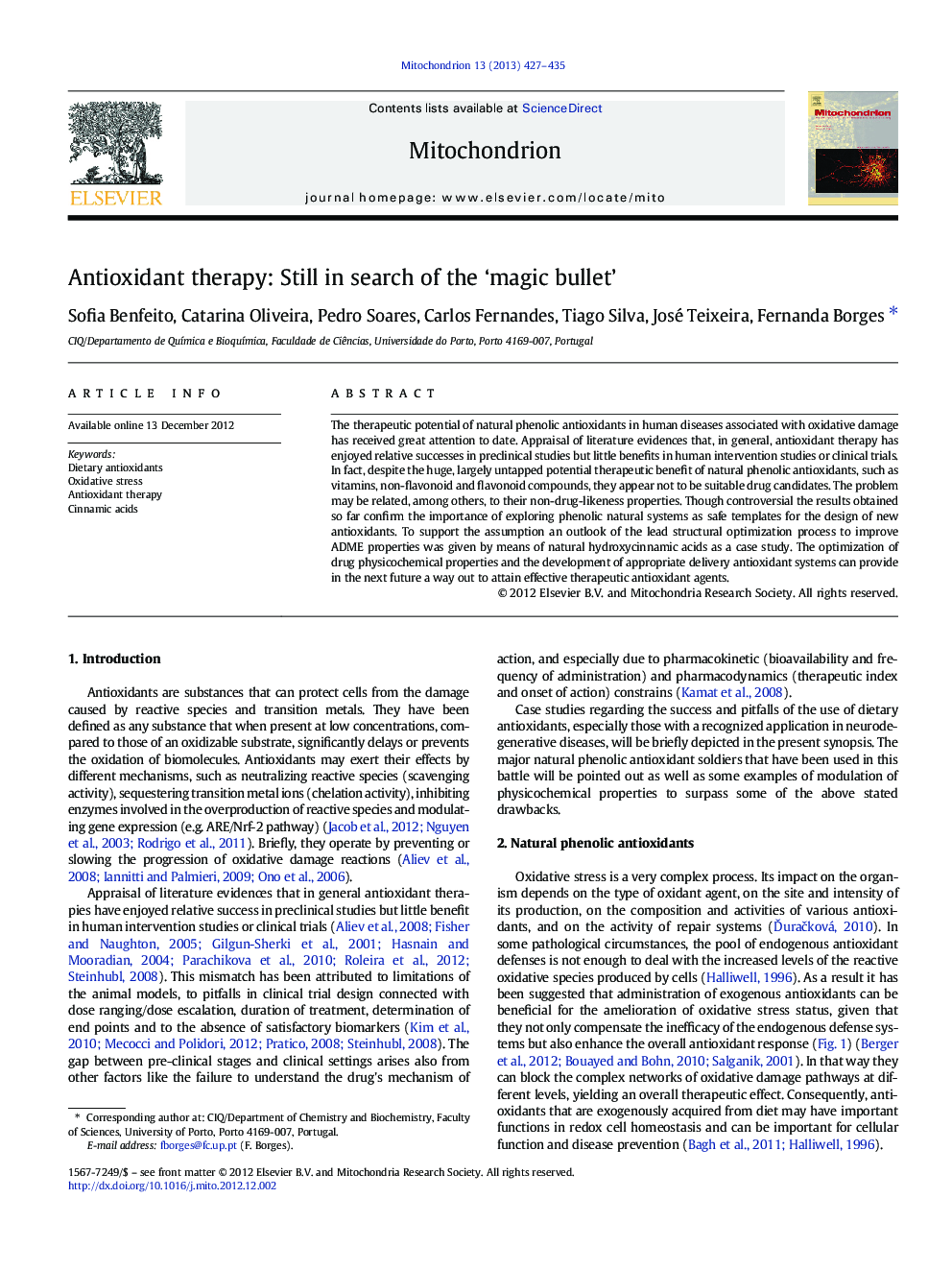| Article ID | Journal | Published Year | Pages | File Type |
|---|---|---|---|---|
| 2068748 | Mitochondrion | 2013 | 9 Pages |
The therapeutic potential of natural phenolic antioxidants in human diseases associated with oxidative damage has received great attention to date. Appraisal of literature evidences that, in general, antioxidant therapy has enjoyed relative successes in preclinical studies but little benefits in human intervention studies or clinical trials. In fact, despite the huge, largely untapped potential therapeutic benefit of natural phenolic antioxidants, such as vitamins, non-flavonoid and flavonoid compounds, they appear not to be suitable drug candidates. The problem may be related, among others, to their non-drug-likeness properties. Though controversial the results obtained so far confirm the importance of exploring phenolic natural systems as safe templates for the design of new antioxidants. To support the assumption an outlook of the lead structural optimization process to improve ADME properties was given by means of natural hydroxycinnamic acids as a case study. The optimization of drug physicochemical properties and the development of appropriate delivery antioxidant systems can provide in the next future a way out to attain effective therapeutic antioxidant agents.
► Antioxidant therapy. ► Natural phenolic antioxidants. ► Successes and pitfalls in clinical trials. ► Pharmokinetic and pharmacodynamic setbacks.
